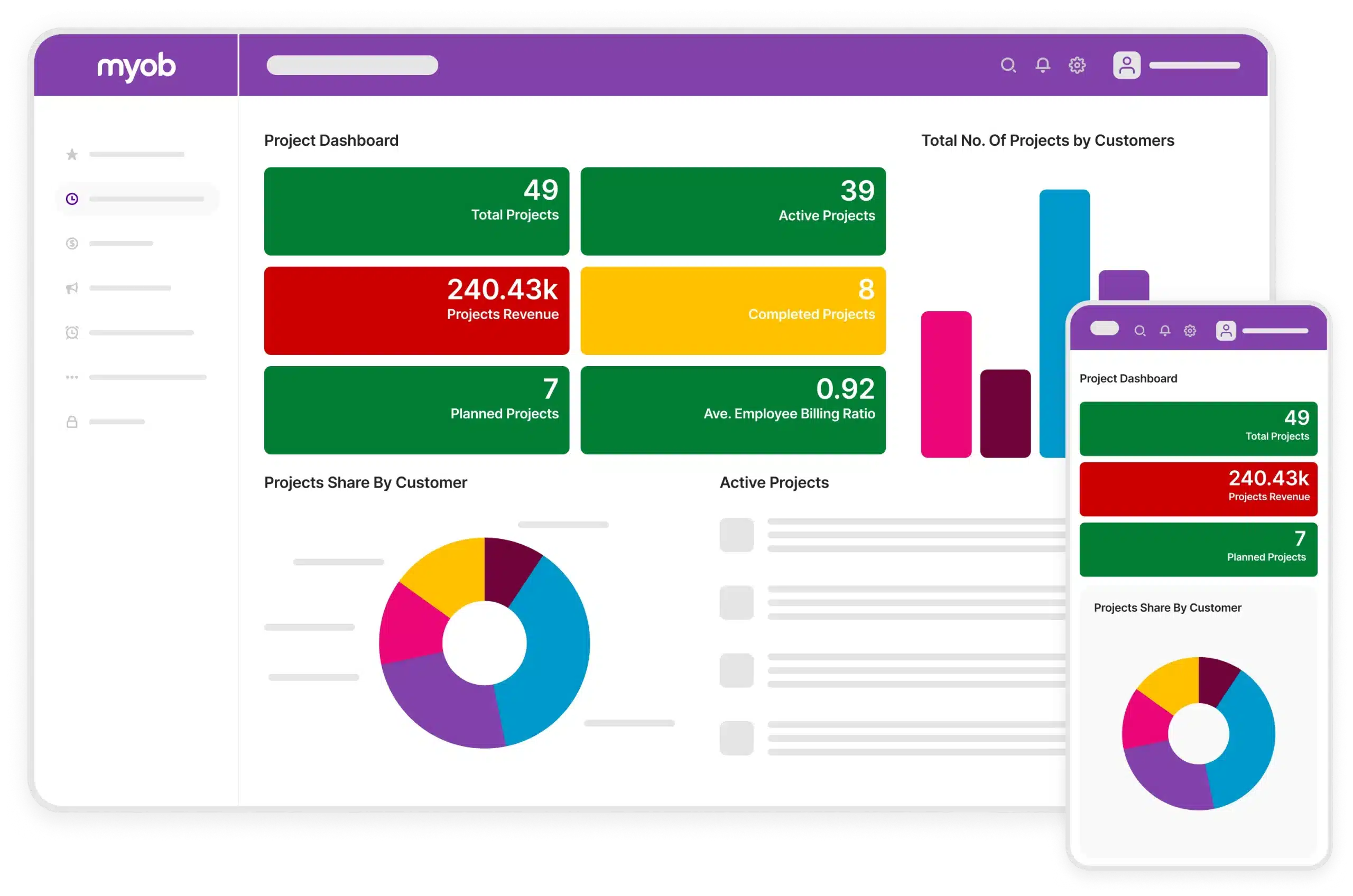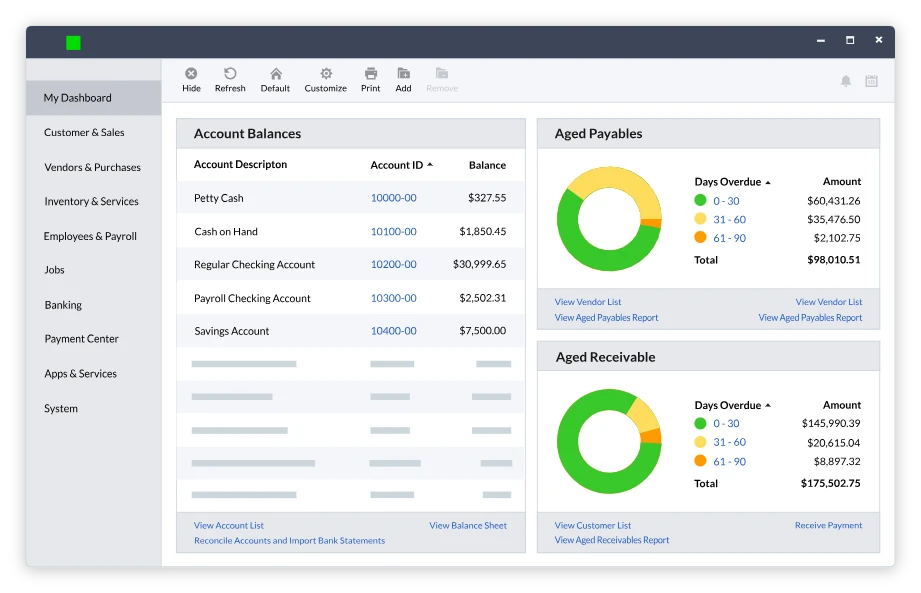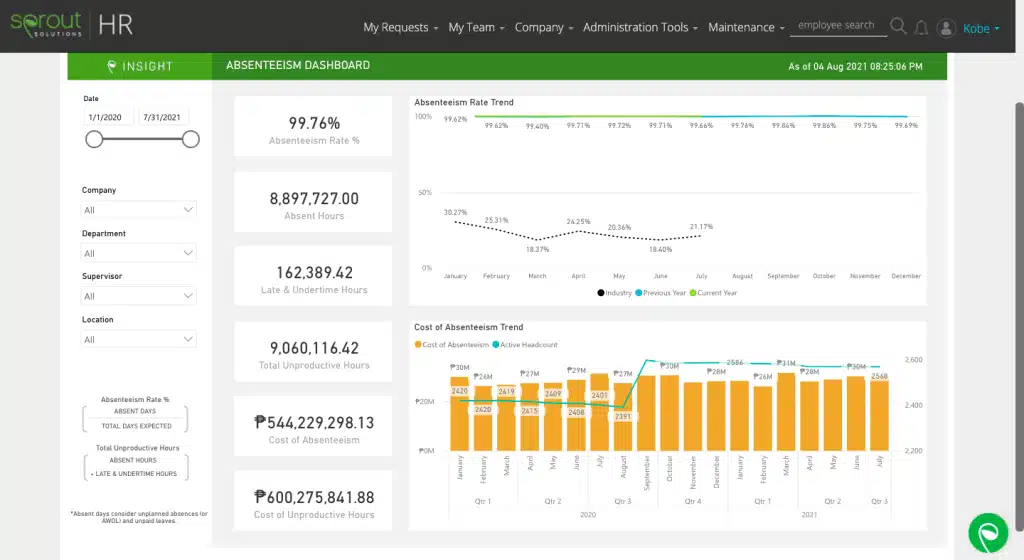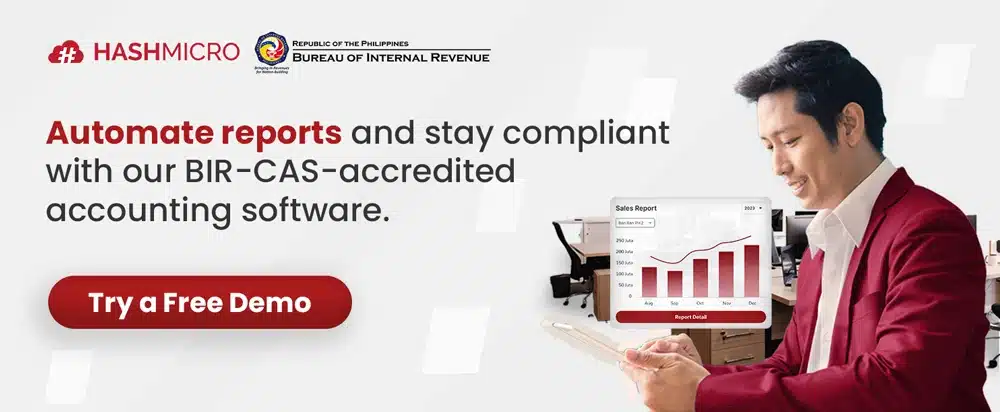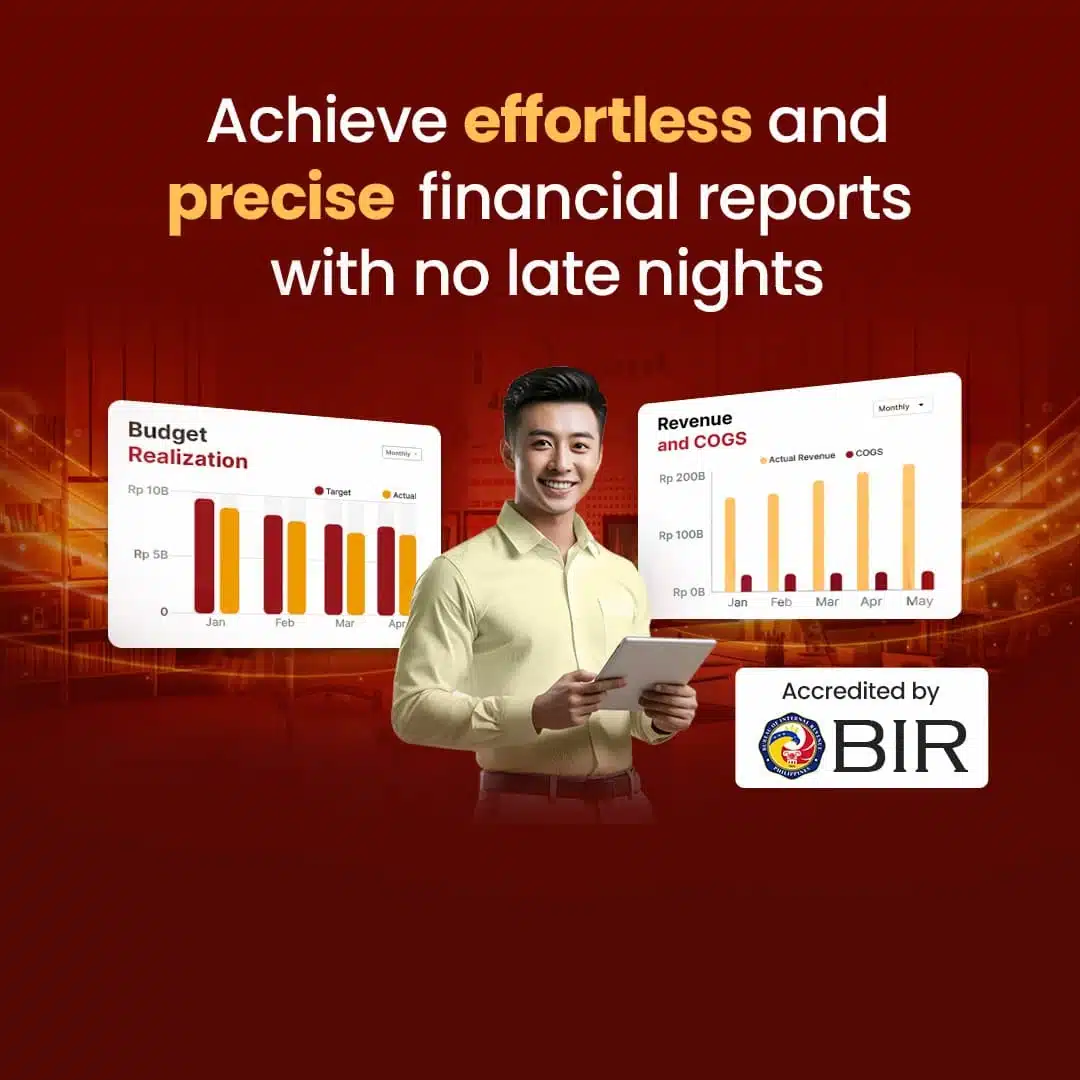Did you know the Bureau of Internal Revenue (BIR) mandates businesses to use BIR-ready accounting software for tax compliance and transparency in business reports, such as the TRAIN Law? Receipts, invoices, purchases, expenses, and sales reports must be classified and printed using the approved system.
If you’re looking for a system that’s confirmed as BIR CAS-approved, easy to use, ready-made, and customizable, consider HashMicro Accounting Software. Not only does it simplify tax-filing processes and reports, but it also connects every aspect of business for effective financial management.
On top of that, we also present to you our curated and researched picks of the Top 21 Best Accounting Software & Tools in the Philippines, free and paid, complete with their features and who should use it best.
Key Takeaways
|
Table of Contents

Here is the Top 21 Accounting Software in The Philippines 2025
- Best all-in-one BIR-Accredited Solution: HashMicro
- Best for small to medium-sized businesses: Xero
- Best for small, medium, and large companies: QNE
- Best for freelancers and SMEs: QuickBooks
- Best for fast-growing & enterprise businesses: NetSuite
- Best for accountants and tax professionals: JuanTax
- Best for freelancers, self-employed professionals: FreshBooks
- Best for small businesses and retailers: MYOB
- Best for startups and service-based businesses: Zoho Books
- Best for professional services: Sage Intacct
What is Accounting Software?
Accounting software is a computer program that assists accountants and bookkeepers in tracking and recording financial transactions. It enables detailed tracking, fast reporting, and analysis, and monitors a business’s assets, liabilities, revenues, and expenses.
According to BSP, digital payments are rapidly increasing in the Philippines, making the use of accounting software justified, as it efficiently and quickly compiles electronic data. This software also securely stores financial records, including past audit trails, dating back years and ahead.
As a result, it helps accountants accurately record financial transactions and aids in the completion of audits. This will help with internal and external audits, where financial records must be investigated for tax purposes.
Need to know!
AI-driven accounting software automates transactions, reconciliations, and reporting. With Hashy from HashMicro, businesses cut errors, improve cash flow, and gain real-time financial insights.
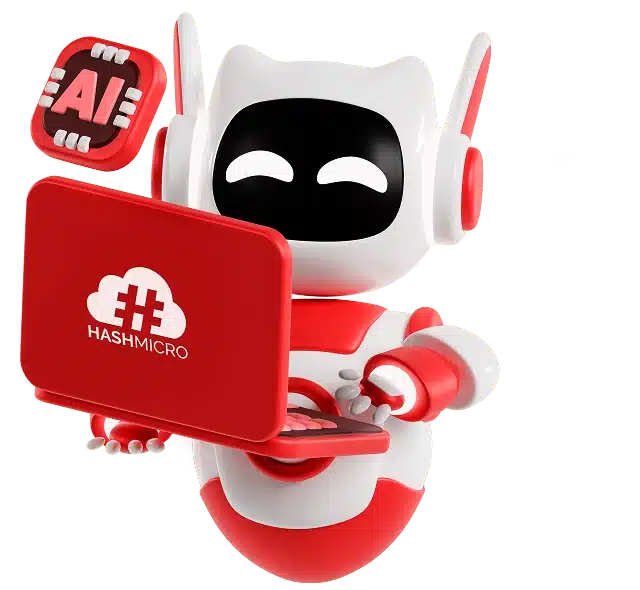
Get a Free Demo Now!
Top 21 Accounting Software & Tools in the Philippines 2025
Choosing the best software for your business can be a challenging task, given the numerous available options. However, do not worry, as we have compiled a comprehensive list of the Top 21 accounting software and tools in the Philippines for 2025, along with their features and functionalities.
1. HashMicro Accounting Software
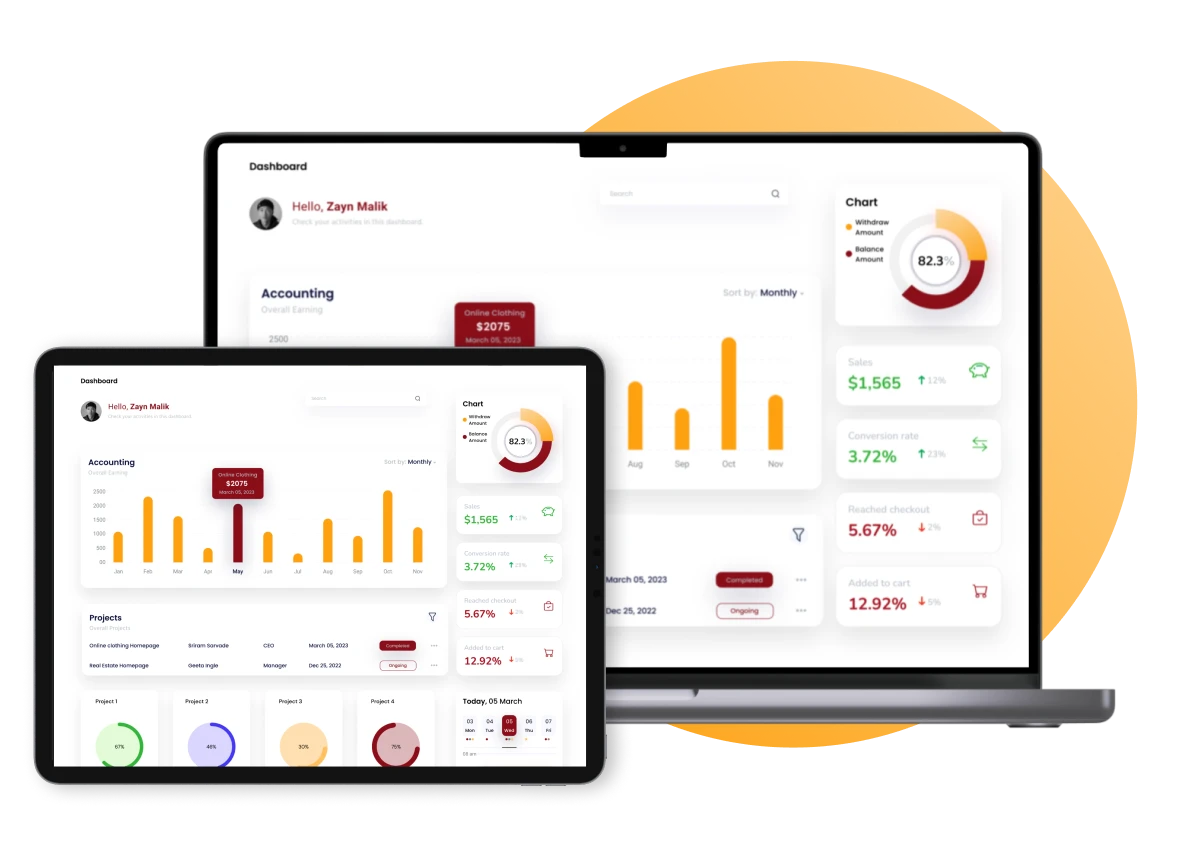
HashMicro, an accredited BIR accounting software, helps businesses track transactions, assets, liabilities, and expenses with ease. With detailed tracking, fast reporting, and easy analysis, it makes financial operations more efficient while following accounting principles.
HashMicro offers a versatile cloud and on-premise solution that automates accounting tasks while meeting BIR CAS requirements. This software is perfect for small to enterprise-level business owners, accountants, and finance managers looking to simplify financial management.
Try HashMicro’s features with a free demo and experience a more efficient way to handle accounting!
Key Features:
- Cash flow statements: Monitor your restaurant’s cash flow in real-time to ensure you always have enough working capital. This feature helps you make informed financial decisions, prevents cash shortages, and improves long-term sustainability.
- Asset Database and Depreciation: Track all restaurant assets, from kitchen equipment to furniture, and automate depreciation calculations. With this feature, you can ensure accurate financial planning, optimize asset utilization, and avoid unexpected losses.
- Client Monitoring Dashboard: Gain a centralized view of customer behavior, purchase history, and engagement. This will allow you to personalize promotions, enhance customer retention, and improve overall dining experiences.
- PFRS-compliant financial reporting: Ensure your restaurant’s financial reports comply with PFRS standards, making audits and regulatory submissions seamless. This feature allows you to generate reliable reports effortlessly and maintain financial transparency.
- Financial budgeting and realization: Plan and monitor your restaurant’s budget in real-time, ensuring better financial control. This feature allows you to forecast expenses, track spending, and maximize profitability.
- Automated Tax Calculation: Simplify tax reporting and compliance with automated tax calculations based on local regulations. This feature eliminates manual tax errors, ensuring compliance while saving time and effort.
- Profit and loss with templates and budget forecast: Get instant profit and loss reports with pre-built templates and accurate budget forecasts. With this, you can analyze your restaurant’s financial health and make strategic growth decisions.
- Financial statement with comparison: Generate detailed financial statements and compare Performance across different periods or branches. This can help you identify trends, optimize operations, and boost restaurant profitability.
| Pros | Cons |
|
|
To truly understand how the BIR-accredited accounting system of HashMicro can transform your financial management practices, we invite you to explore our flexible pricing plans.
Click on the banner below to discover how HashMicro’s accounting and bookkeeping software can deliver exceptional value and benefits tailored to your business needs.

2. Xero
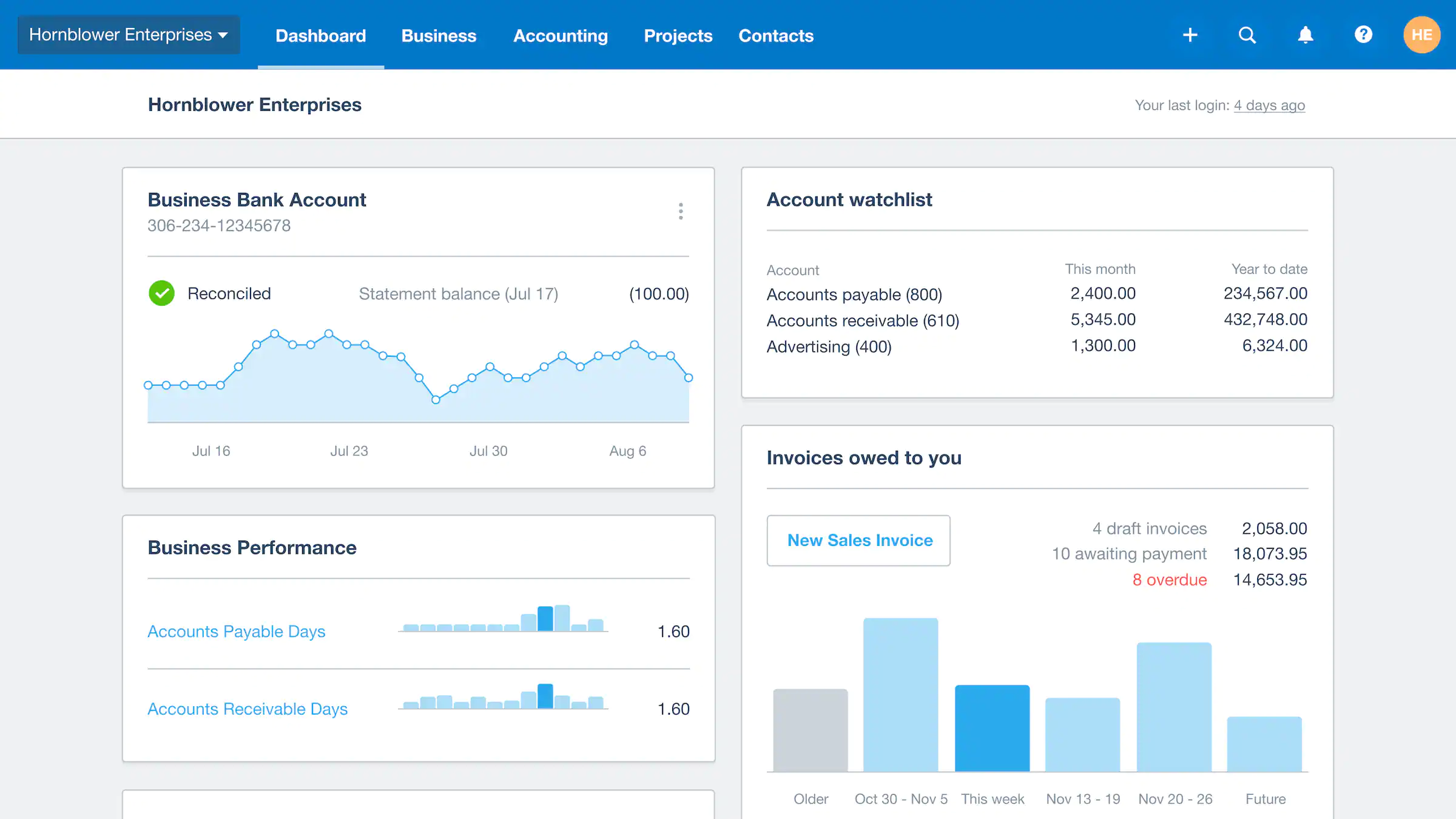
Xero accounting software is a cloud-based accounting system tailored to meet the needs of businesses. It assists companies with bookkeeping functions such as invoicing and payroll, and integrates with a live bank feed.
Furthermore, the system allows both cash-based and accrual-based bookkeeping software, which is very suitable for companies in the Philippines that comply with IFRS.
Key Features:
- Bills tracking
- Bank connections
- Online payment
- Financial reporting
- Inventory tracking
- Multi-currency accounting
| Pros | Cons |
|
|
Xero Accounting Software is ideal for small businesses, accountants, and bookkeepers who manage multiple clients.
Xero Pricing: The Starter Plan for $25/month, the Standard Plan for $40/month, and the Premium Plan for $54/month.
3. QNE Accounting Software
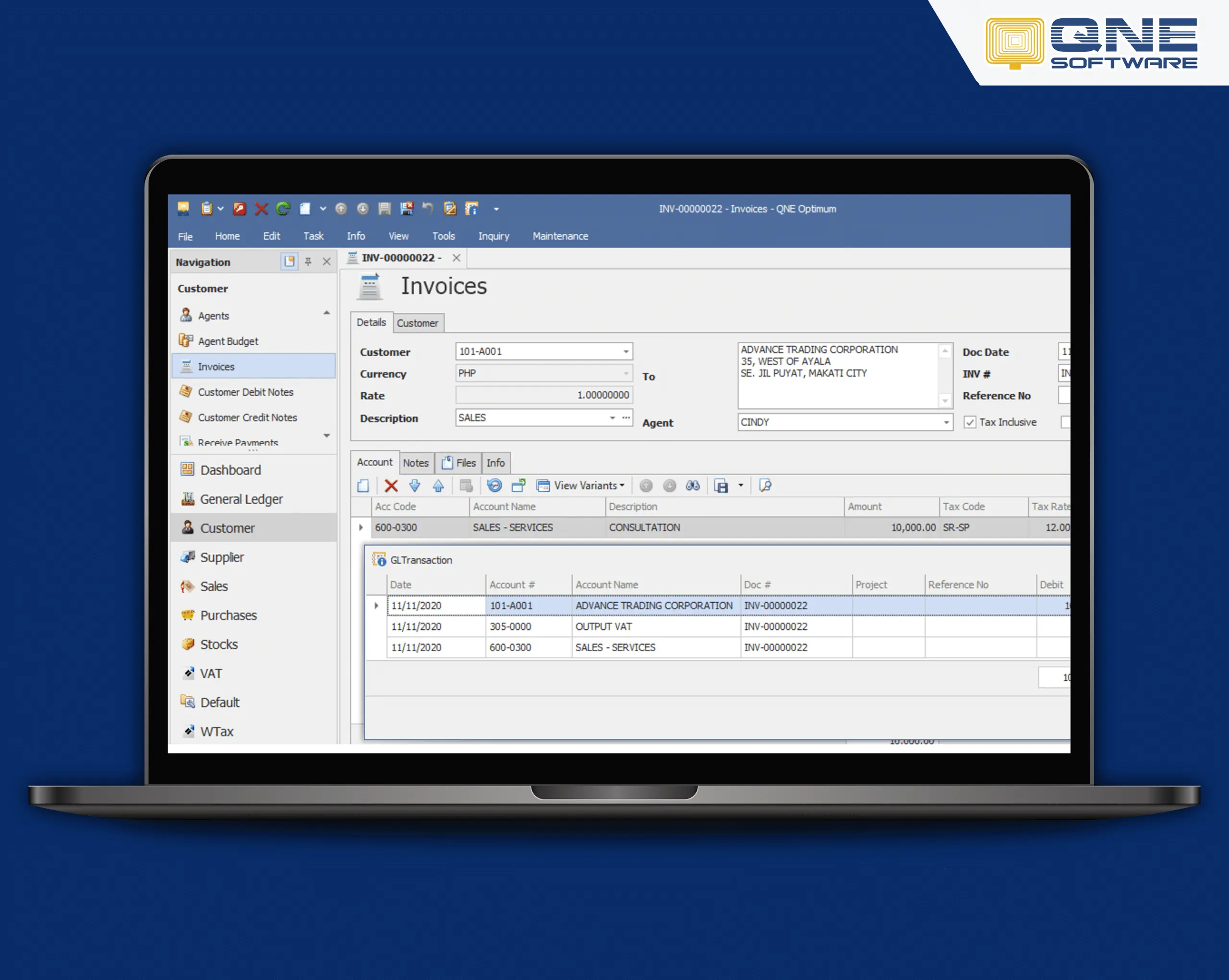
QNE Software is an accounting system software for the Philippines and other Southeast Asian businesses. It assists with financial accounting, progress billing, and sales distribution modules.
It is tailored to meet local business requirements and challenging environments in the region. The software offers real-time processing, data handling, database recovery, and scheduled backup, enabling users to manage their accounting operations efficiently.
Key Features:
- Cloud-based deployment
- Online order portal
- Online customer portal
- BIR CAS-ready
| Pros | Cons |
|
|
QNE Software is well-suited for small, medium, and large companies across various industries, including trading, distribution, manufacturing, retail, and services.
QNE Accounting Pricing: It offers a one-time purchase starting at $100, with pricing varying based on business needs and selected modules.
4. QuickBooks Accounting Software
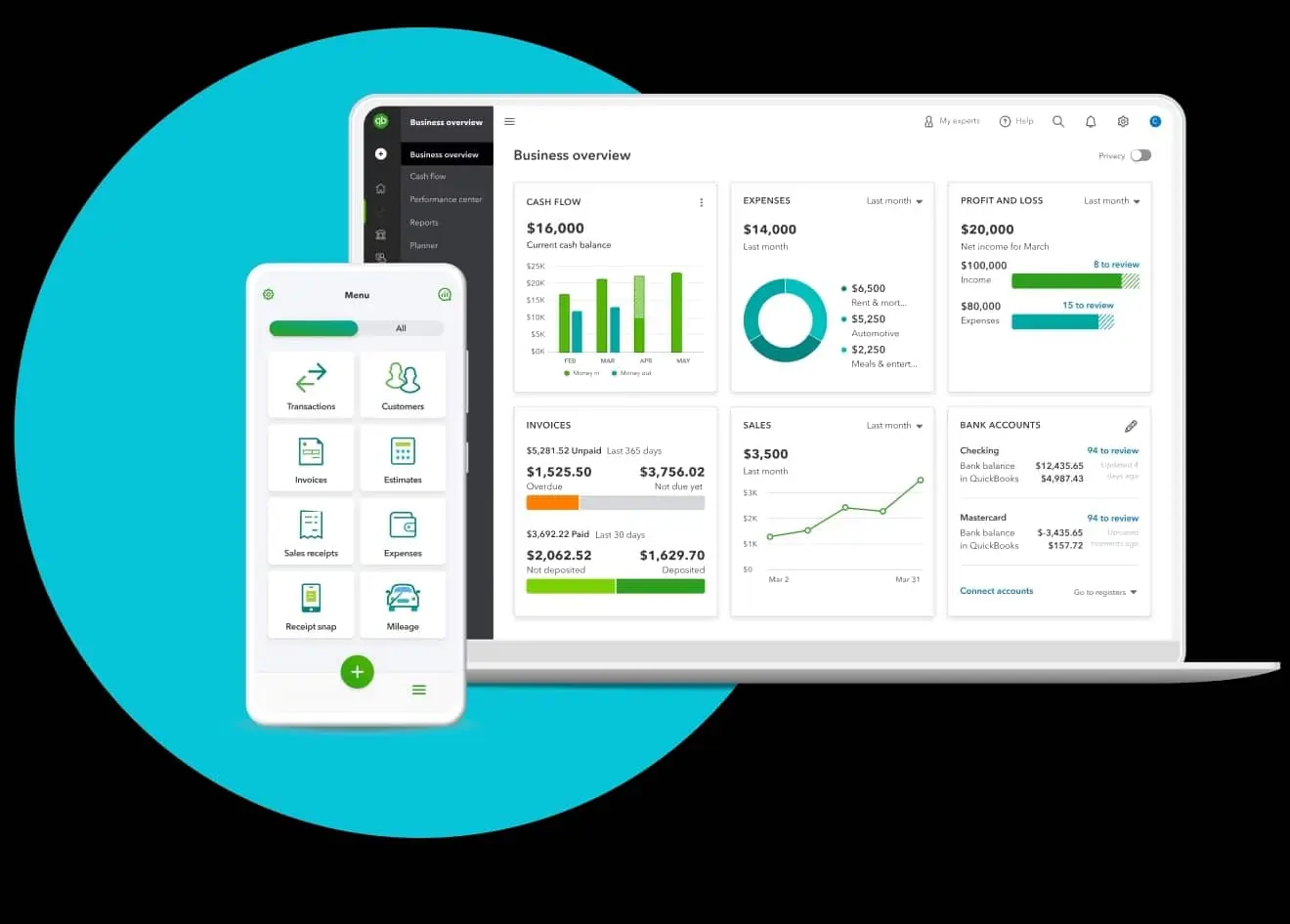
QuickBooks accounting system is one of the best accounting software suites businesses use to manage their financial transactions. It enables users to create invoices, process payments, generate reports, and print documents needed for tax preparation.
Key Features:
- Purchasing and vendor management
- Reporting and analytics
- Time and expense management
- Invoicing and billing
- General ledger
| Pros | Cons |
|
|
QuickBooks Accounting is ideal for self-employed individuals and small to mid-sized companies across various industries, including retail, restaurants, and nonprofits.
QuickBooks Pricing: Starts at $9.50/month, Essentials at $14/month, Plus at $20/month, and Advanced at $38/month, with a 50% discount for the first three months.
5. Oracle NetSuite Cloud Accounting
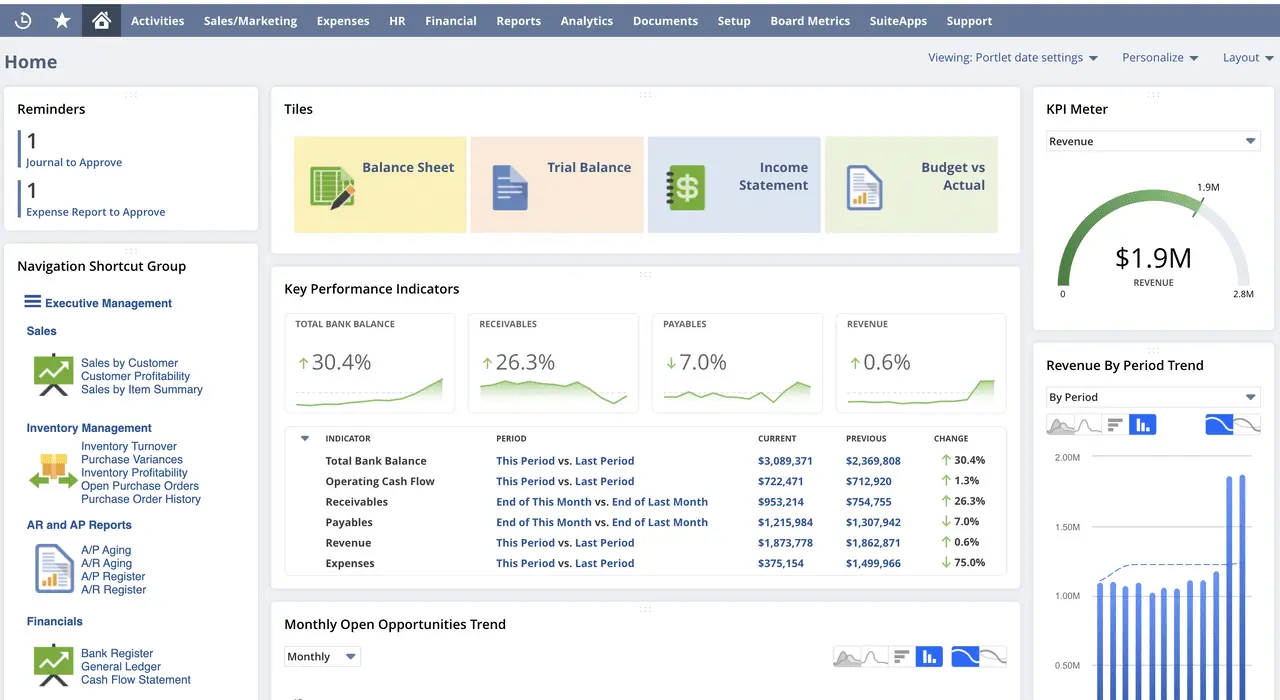
NetSuite Accounting Software is one of the best accounting software solutions, renowned for its adaptable modules that cater to various business requirements, including financial operations, accounts payable and accounts receivable, CRM, and e-commerce activities.
This system is favored by fast-growing companies in the Philippines due to its automation features, particularly in invoicing and other financial tasks.
Key Features:
- E-commerce integration
- Financial management
- Multi-currency
- Reporting and analytics
- Invoicing and billing
| Pros | Cons |
|
|
NetSuite Cloud Accounting Software is ideal for fast-growing companies and enterprise businesses, including those supported by private equity (PE) or venture capital (VC).
Oracle NetSuite Pricing: Accounting software pricing starts at $4,595
6. JuanTax
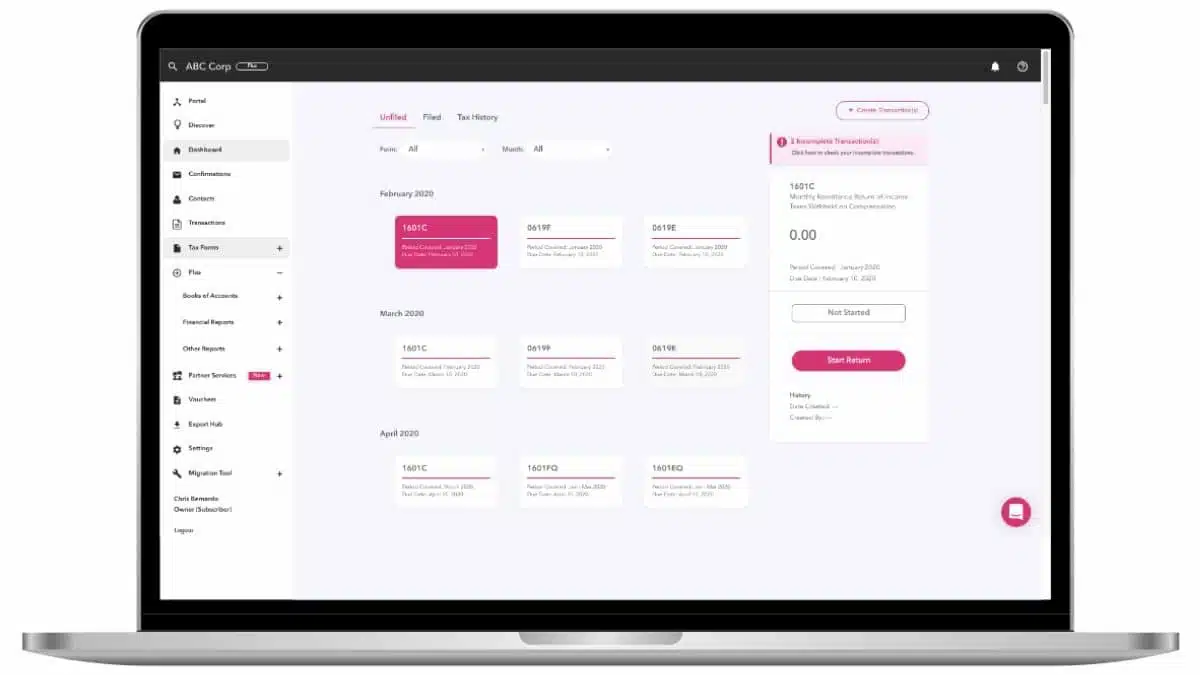
JuanTax is a modern tax and accounting system tailored for businesses in the Philippines. Designed to simplify tax compliance, it automates tax calculations, tracks expenses, and generates required reports for both small and large enterprises.
Key Features:
- Tax Compliance Automation
- Real-Time Reporting
- Expense and Invoice Tracking
- Cloud-Based Access
| Pros | Cons |
|
|
JuanTax is designed for Filipino businesses, accountants, and bookkeepers who need automated tax return preparation and filing.
JuanTax Pricing: Starts at PHP 600/month (PHP 7,200/year) for CPA and bookkeeping firms, and PHP 2,000/month (PHP 24,000/year) for SMEs.
7. FreshBooks Online Accounting Software
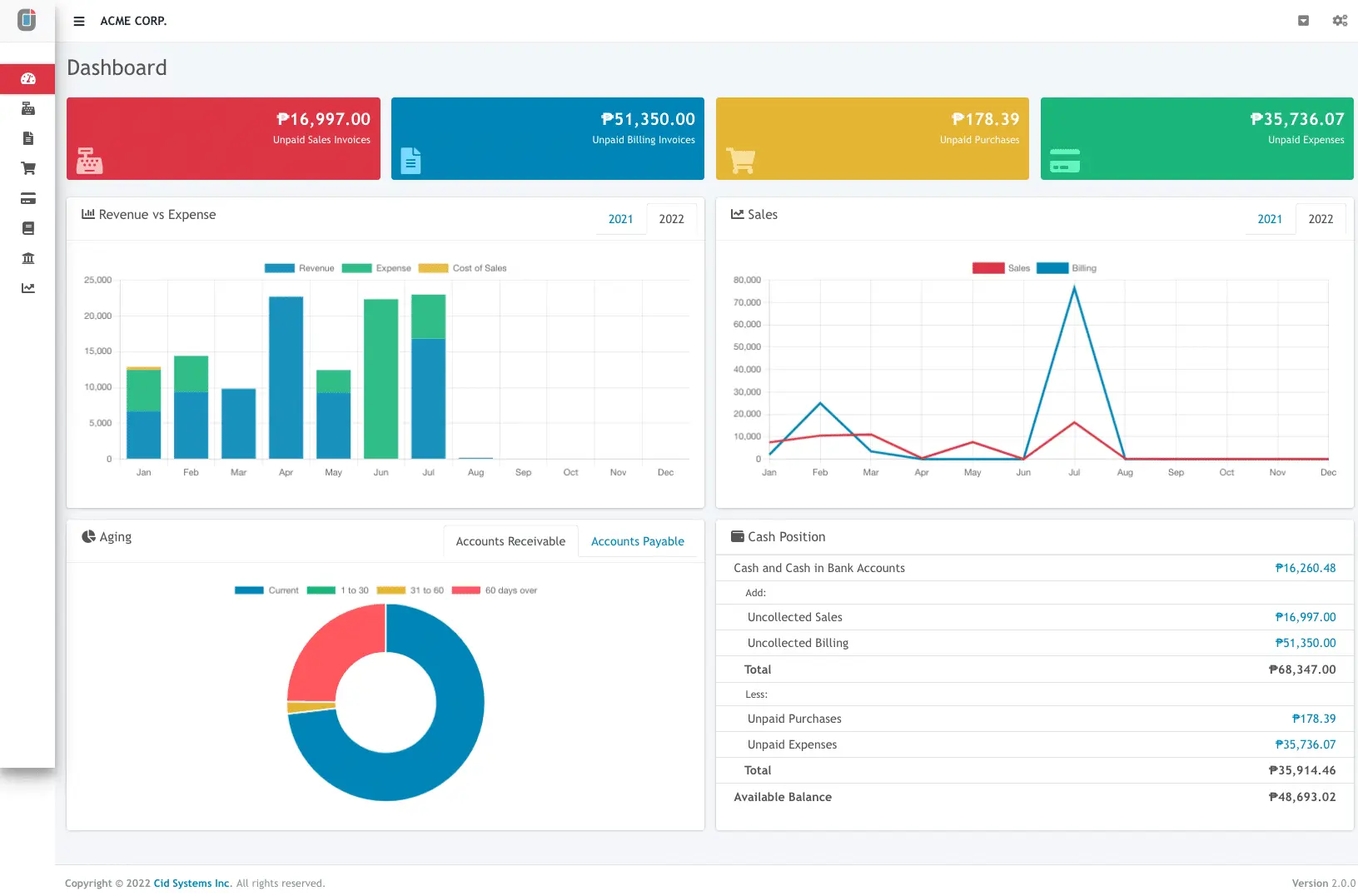
FreshBooks is one of the best accounting software programs for business owners, freelancers, and sole proprietors. It simplifies financial management for Filipino businesses by tracking payments and expenses, managing invoices, facilitating payments, and managing financial reports.
Key Features:
- Budget and cost management
- Reporting
- Chart of Accounts
- Time tracking
- Project management
| Pros | Cons |
|
|
FreshBooks is suitable for freelancers, self-employed professionals, startups, and small to medium-sized businesses seeking efficient accounting solutions.
FreshBooks Accounting Pricing: Start at $7.60/month, Plus at $13.20/month, and Premium at $24/month.
8. MYOB Accounting Software
MYOB is an accounting system in the Philippines that specializes in bookkeeping and tax management. Their product lineup includes Essentials Payroll, MYOB Essentials, and MYOB AccountRight, which cater to businesses of various sizes. It is well-known for its efficiency in handling accounting tasks.
Key Features:
- Invoice management
- Expenses management
- Tax and GST management
- Bank account integration
- Payroll management
- Financial reporting
| Pros | Cons |
|
|
MYOB Accounting is usually used by small to medium-sized businesses (SMBs), accountants, and bookkeepers, as well as retail, hospitality, and consulting firms.
MYOB Pricing: Offers four plans: Solo ($12/year, then $99/year) for freelancers, and AccountRight Plus ($70.50/month, then $141/month) for larger businesses.
9. Zoho Books
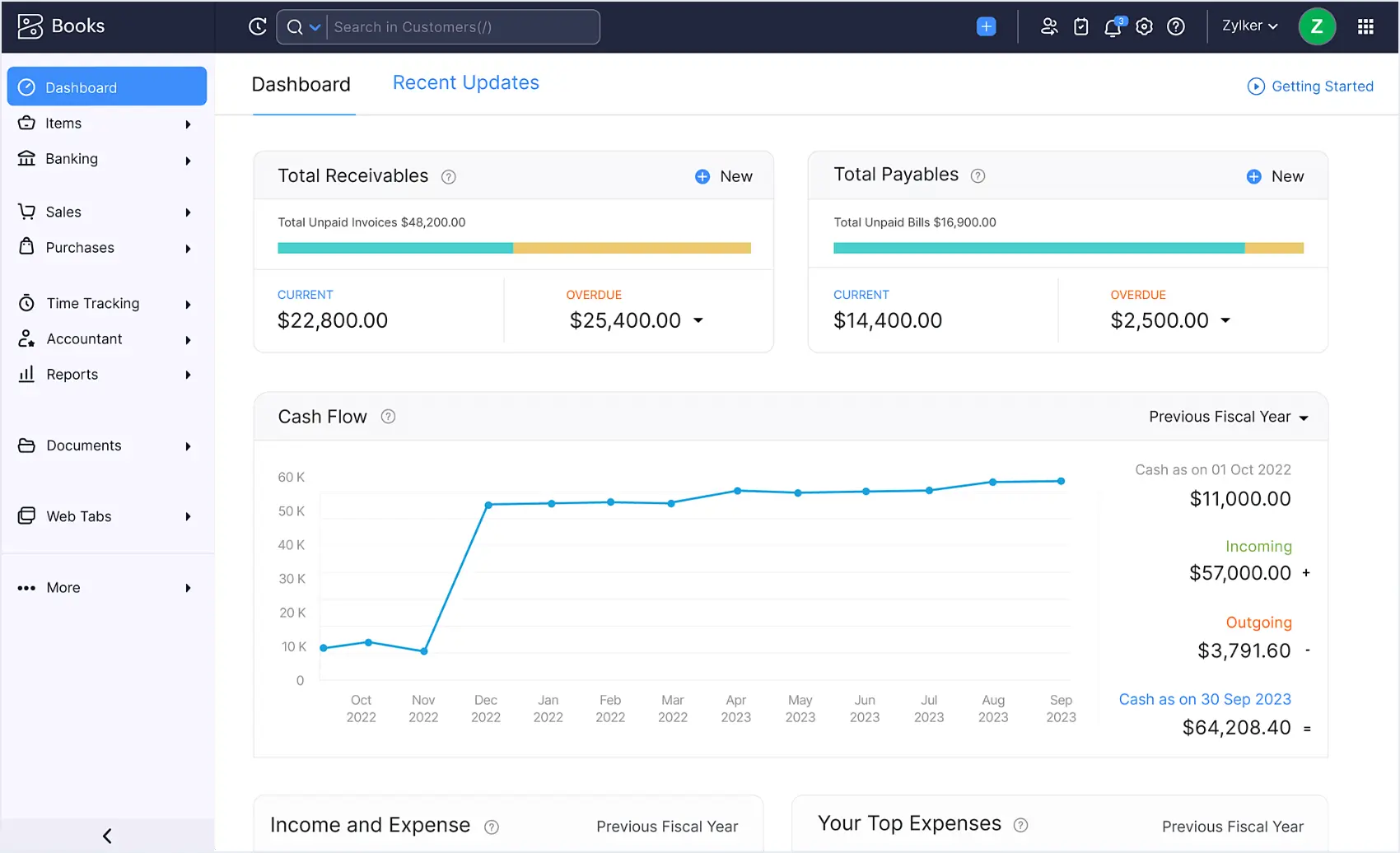
Zoho Books is one of the best cloud-based accounting software solutions, offering invoicing, inventory, and project management capabilities. It provides a free plan and a range of features designed to simplify accounting tasks.
Furthermore, Zoho Books seamlessly integrates with over 40 other Zoho applications, including Zoho CRM and Zoho Inventory, as well as numerous third-party apps.
Key Features:
- Inventory management
- Bank integration
- Expense tracking
- Customer portal
| Pros | Cons |
|
|
Zoho Books is suitable for small to medium-sized businesses (SMBs) in the Philippines seeking an affordable option compared to more expensive and complex software solutions.
Zoho Books Pricing: It offers six pricing plans, ranging from Free at $0/month for one user and one accountant, to Ultimate at $200/month for 15 users with advanced analytics.
10. Sage Intacct Accounting Software
Sage Intacct is a cloud-based accounting software in the Philippines, designed to provide businesses with complete financial visibility and control. It helps streamline accounts payable, accounts receivable, the general ledger, and cash management, saving businesses time and enabling them to make better decisions.
Key Features:
- Reporting and analytics
- AP/AR functionality
- General ledger
- Time and expense management
- Invoicing and billing
| Pros | Cons |
|
|
Sage Intacct is ideal for medium-sized businesses, typically with 5 to 2,000 employees. It also suits professional services, non-profit organizations, software and technology companies, healthcare providers, and senior living centers.
Sage Pricing: Contact the vendor to obtain a quote for using Sage.
11. Kashoo
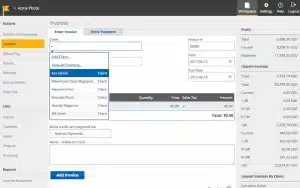
Kashoo is a cloud-based accounting system software for businesses in the Philippines seeking to manage their finances independently. With Kashoo, users can create invoices, track expenses, manage transactions, process payroll, generate reports, and handle other accounting tasks from any device.
Kashoo offers three plans: a free plan, which includes invoicing and payment tracking, and a small plan. Accounting for automated income and expenses tracking, and Kashoo, for full features unlocked.
Key Features:
- Inventory tracking
- Customizable layout
- Invoicing and bill management
- Reporting
- AR/AP functionality
- Tax Management
| Pros | Cons |
|
|
Kashoo Accounting Software is well-suited for freelancers, contractors, digital professionals, and small businesses with 10 to 50 employees.
Kashoo Pricing: The platform offers two pricing plans: $216 per year for automated accounting for small businesses and $324 per year for advanced.
12. Wave Accounting System Software

Wave is free accounting software designed for businesses in the Philippines that aim to minimize their expenses. It provides a range of financial management tools.
Wave accounting system software helps you oversee cash flow by tracking income and expenses, managing accounts receivable and payable, generating reports, automating tasks, and allowing multiple users. Additionally, Wave offers a payroll service that facilitates tax filing and payments to employees or contractors through direct deposit.
Key Features:
- Income and expense tracking
- Customizable sales taxes
- Exportable basic accounting reports
- Online payment
| Pros | Cons |
|
|
Wave Accounting Software is ideal for freelancers, consultants, and micro-businesses seeking a user-friendly, cost-effective accounting solution.
Wave Pricing: Starter at $0/month for basic invoicing and bookkeeping, and Pro at $16/month or $170/year for advanced features and cash flow management.
13. easyFS
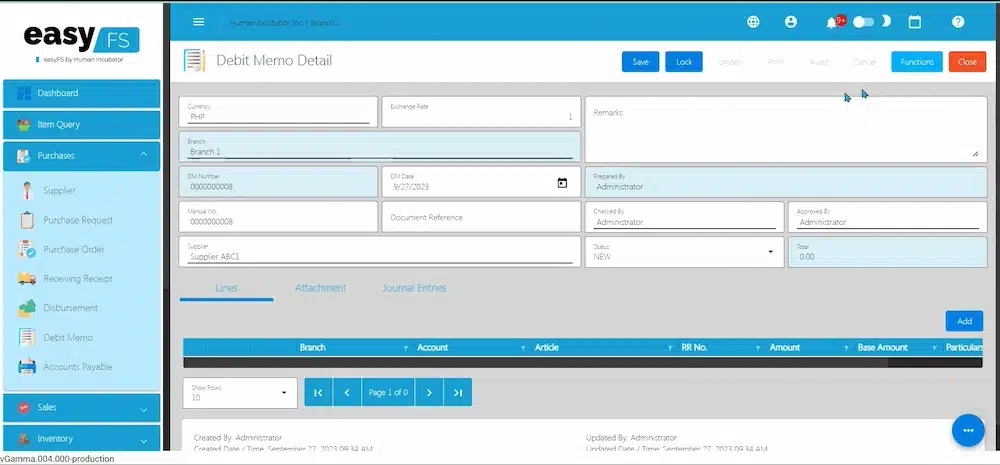
easyFS is a software-as-a-service (SaaS) business accounting software in the Philippines. It provides a solution to effectively monitor sales, check inventory situations, and create financial reports. In addition, this software is CAS (Computerized Accounting System) compliant and ready for government taxation in the Philippines.
Key Features:
- BIR CAS-ready
- Sales and inventory management
- Tracking business expenses
- Financial reports
- Multi-branch operations
| Pros | Cons |
|
|
EasyFS is well-suited for micro, small, and medium-sized enterprises (MSMEs) in the Philippines.
EasyFS Pricing: Please contact the vendor to obtain a quote.
14. Oojeema

Oojeema is among the local best accounting software that helps accountants in the Philippines streamline their work process. It supports BIR-compliant reports and forms, enabling accountants to save time preparing them. Additionally, it features invoice and billing management, payment issuance, and journal entries.
Key Features:
- Sales invoice
- Billing invoices
- Purchase management
- Expense management
| Pros | Cons |
|
|
Oojeema Accounting is suitable for small and medium-sized enterprises (SMEs) as well as solopreneurs just starting their careers.
Oojeema Pricing: Oojeema starts at PHP 490/month with limited transactions, Pro at PHP 1,120/month with unlimited transactions, and Premium at PHP 2,800/month with advanced features.
15. AccountEdge
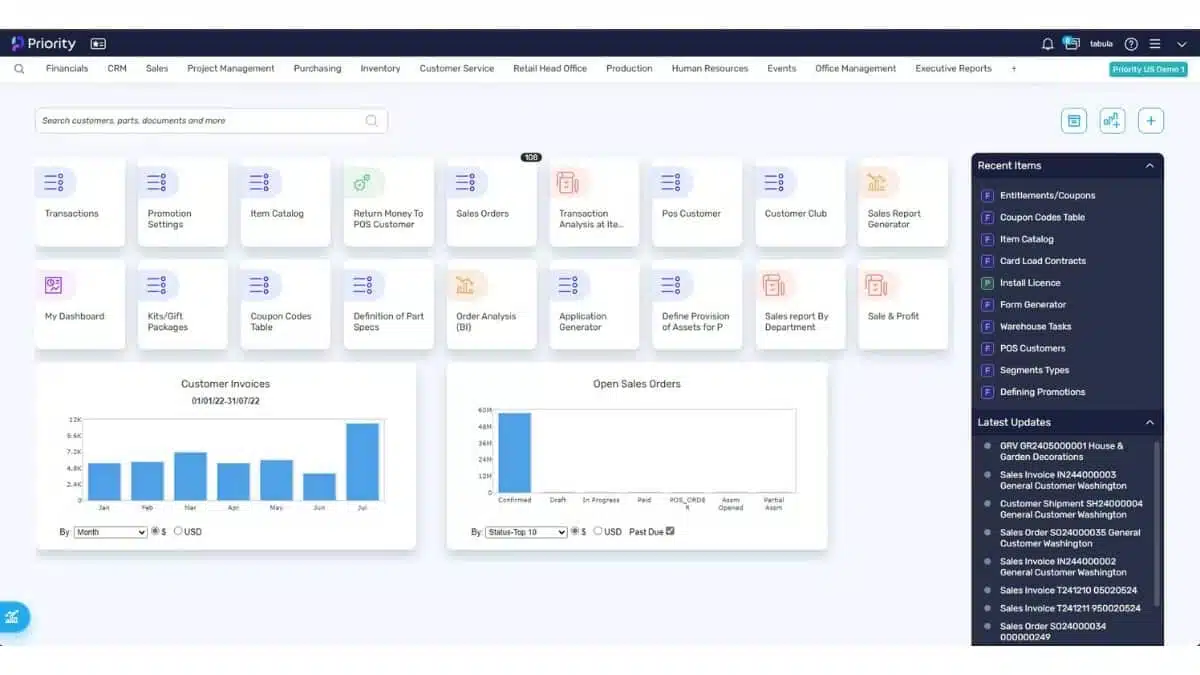
AccountEdge is a robust accounting solution designed for businesses looking for a desktop-based solution. With features ranging from payroll to inventory management, it caters to small and medium-sized companies that need comprehensive accounting tools.
Key Features:
- Complete Accounting Management
- Payroll Processing
- Inventory Control
- Customizable Reports
| Pros | Cons |
|
|
AccountEdge is particularly well-suited for industries such as retail, restaurants, professional services, construction, and manufacturing.
AccountEdge Pricing: It starts at $20/month for a single user on a local desktop, $30/month for the Network Edition for two users, and $50/month for single or multi-user access via a web browser.
16. Tipalti
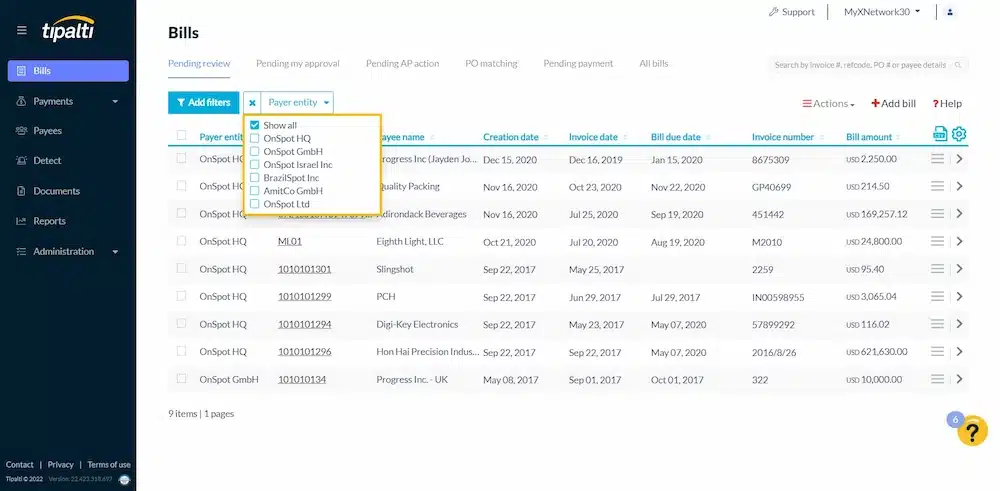
Tipalti is an accounting software solution that specializes in automating accounts payable, procurement, expense management, and global payments. It offers products such as AP Automation, Mass Payments, Procurement, and Expense Management.
As it caters to businesses across various sectors, including education, e-commerce, business services, and adtech, Tipalti excels in handling complex accounting tasks.
It’s designed for businesses of all sizes, offering automated invoice processing, support for over 120 currencies, tax compliance automation, and seamless integration with popular ERP systems.
Key Features:
- Automated Invoice Processing
- Global Payments in 120+ Currencies
- Tax Compliance Automation
- Integration with ERP Systems
| Pros | Cons |
|
|
Tipalti Accounting Software is ideal for mid-sized companies, typically with 50 to 1,000 employees, in industries like computer software, marketing and advertising, internet services, and information technology.
Tipalti Pricing: Platform fee starts at $99 per month.
17. Microsoft Excel
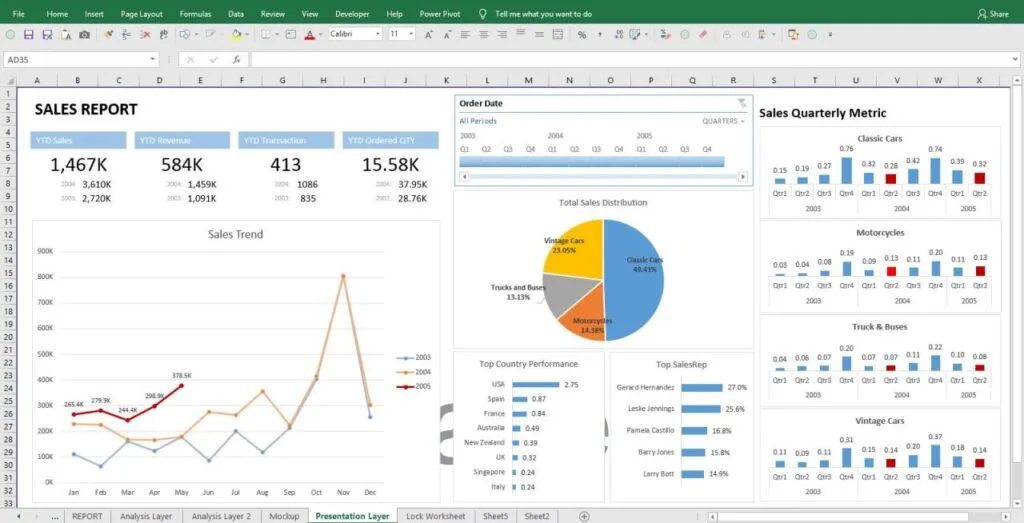
Microsoft Excel remains a widely relied-upon tool for accounting tasks across businesses in the Philippines. Its familiarity, flexibility, and accessibility make it a practical choice for companies looking to manage their financial data with precision and control. Many professionals continue to trust Excel as a foundational part of their accounting workflow.
Key Features:
- Built-in formulas for quick calculations and data analysis
- Charting tools to visualize trends and patterns
| Pros | Cons |
|
|
Microsoft Excel is ideal for businesses, accountants, and professionals who need a flexible and reliable tool for data analysis, budgeting, and financial management.
Microsoft Excel Pricing: Contact the vendor for add-on pricing.
18. Sage 50
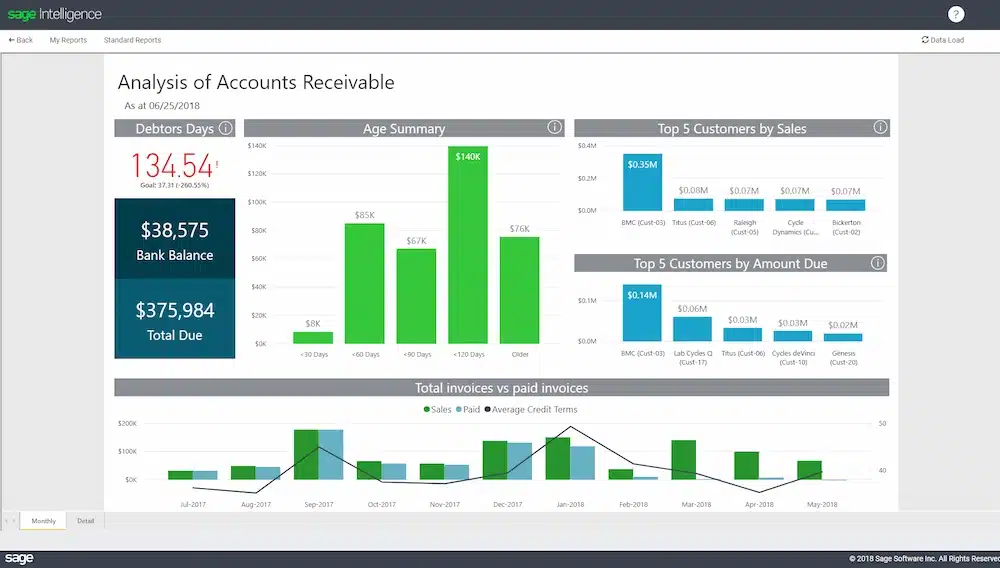
Sage 50 is a comprehensive accounting software solution designed for small and medium-sized businesses. Sage 50 operates on a desktop platform with cloud-connected capabilities, which can integrate with Microsoft 365, enhancing productivity with tools like Excel and Outlook.
Sage 50 offers three versions: Pro Accounting is ideal for single users, Premium Accounting supports multiple users with advanced features such as serialized inventory tracking, and Quantum Accounting is designed for larger teams with role-based permissions and workflow tools.
Key Features:
- Invoicing and Billing
- Expense Tracking
- Inventory Management
- Bank Reconciliation
- Financial Reporting
| Pros | Cons |
|
|
Sage 50 is ideal for small to medium-sized businesses in various industries, including construction, manufacturing, and distribution.
Sage 50 Pricing: Starts at $625 to $1,780 per year for one user; supports up to 40 users.
19. Ecount Accounting Software
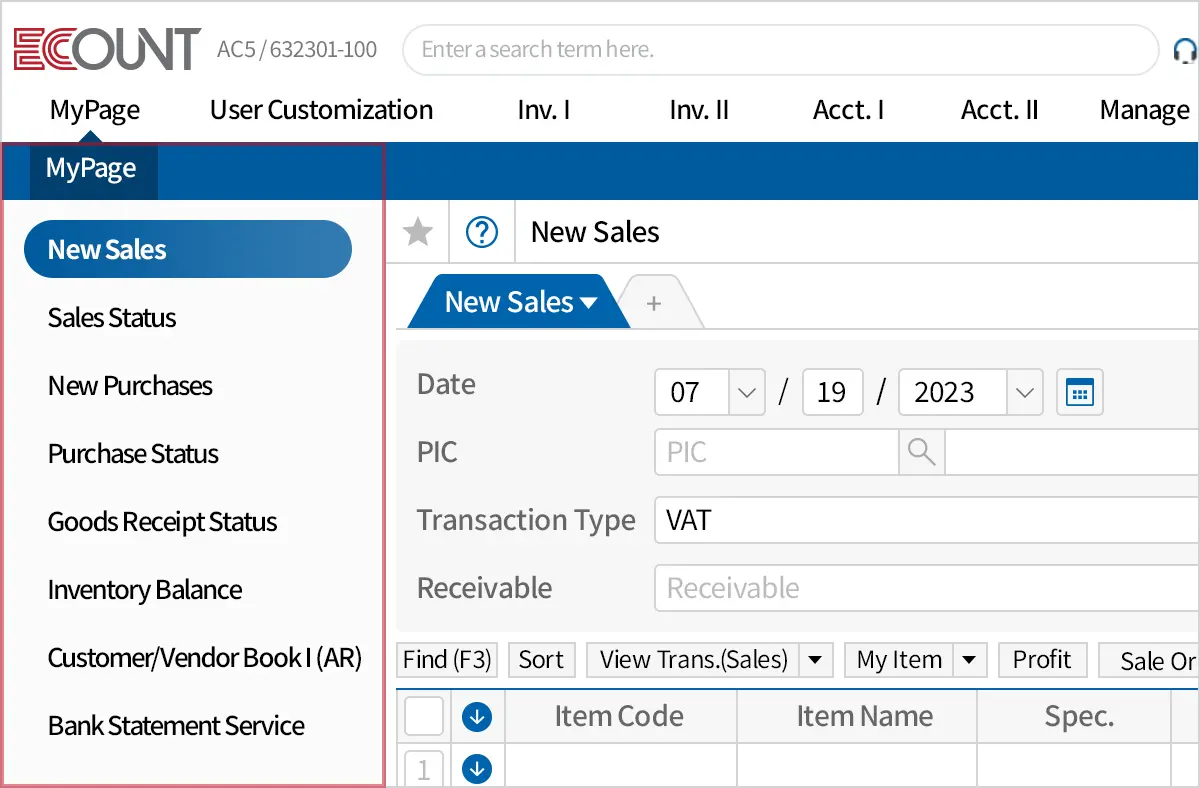
Ecount Accounting Software is a practical solution for businesses looking to manage their financial operations with greater clarity and control. Designed to support day-to-day processes with efficiency in mind, it helps companies stay organized, make informed decisions, and maintain smooth financial workflows as they grow.
Key Features:
- General Ledger Management
- Invoicing & Billing
- Budget Management
| Pros | Cons |
|
|
Ecount: Ideal for small to mid-sized businesses, particularly those in the manufacturing, distribution, and trading sectors.
Ecount Pricing: Contact the vendor for add-on pricing.
20. Odoo Accounting
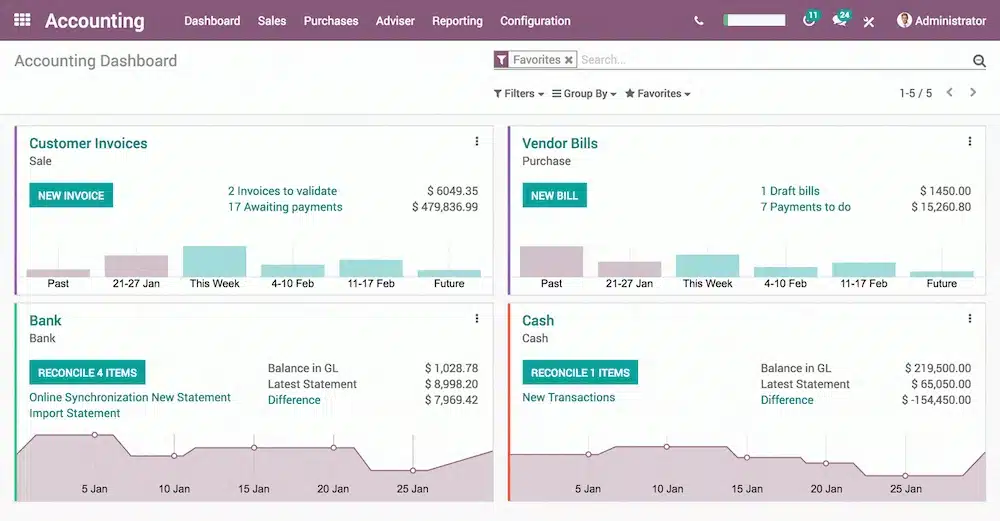
Odoo Accounting is a comprehensive and user-friendly software for businesses of all sizes. It offers a wide range of features to enhance efficiency and accuracy in financial management.
Odoo Accounting seamlessly integrates with other Odoo modules, including Sales, Inventory, and CRM. Its modular design allows businesses to customize the system according to their specific needs
Key Features:
- Invoicing and Billing
- Expense Management
- Inventory Management
- Bank Reconciliation
- Multi-Currency Support
| Pros | Cons |
|
|
Odoo Accounting is ideal for businesses of all sizes, from small startups to large corporations, offering the flexibility to select and pay only for the modules they require.
Odoo Pricing: Contact the vendor for a quote.
21. Sprout Solutions
Sprout Solutions is a payroll and HR software designed for businesses in the Philippines. While it primarily focuses on HR and payroll, it integrates with accounting tools to help companies to manage their finances more efficiently.
This system integrates with other accounting tools, such as Beppo, among other bookkeeping software. Beppo is a bookkeeping and tax-filing platform tailored for small business owners and self-employed individuals.
Key Features:
- General Ledger
- Expense management tools
- Time and billing system
- Multi-currency system
| Pros | Cons |
|
|
Sprout Solutions is ideal for businesses of all sizes in the Philippines seeking customized HR and payroll solutions.
Sprout Pricing: Please contact the vendor for a customized quote.
Benefits of Accounting Software
Accounting software offers various benefits to those who use it, including ensuring that the company’s accounting system is implemented well. Here are some key benefits of accounting software:
- Efficiency and Accuracy: Automates calculations, reduces human error, and ensures accurate financial reporting and tax compliance.
- Real-Time Financial Insights: Provides up-to-date reports on cash flow, expenses, profits, cash ratio, and return on equity (ROE), so the company can track where its funds are used and make adjustments immediately.
- Time Savings: Speeds up processes such as invoicing, sales orders, rebate accounting, adjusting entries, journal entries, payroll, reconciliation, accounts receivable, purchase journal, and Year-End Accounting.
- Cost Management and Structure: Tracks expenses, budgets, marginal costs, and manufacturing overhead costs, enabling upper management to identify cost-saving and revenue-cost opportunities.
- Accessibility: Cloud-based software provides access to financial data anytime and anywhere, allowing anyone who needs it to access the data.
- Forecasting Tools: Help predict future financial performance by analyzing historical data, enabling the company to implement more effective budgeting and strategic planning.
Tips for Choosing the Best Accounting Software

Choosing the best accounting software for your business in the Philippines can be a challenging task. Every software vendor offers a unique set of features tailored to specific types of companies. Some also offer multiple pricing plans that vary in a number of users, features, and so on.
When selecting accounting system for your business, keep these factors in mind to make your search easier.
1. Budget
Consider the monthly investment you’re comfortable with and the potential savings from using accounting software. Review all available pricing plans to ensure you select one that provides the necessary functionality within your budget.
2. Features
Besides budget, consider whether the accounting software’s features fit your needs. List essential functions like invoicing, expense tracking, and financial reporting. Also, look for software that integrates smoothly with other tools you use.
Pro tip: Choose a scalable system to future-proof your business. For example, FMCG companies may initially start with accounting software, but later require ERP solutions that seamlessly integrate new tools as they expand.
3. Scalability
Implementing the best accounting system software is a long-term investment. Select a scalable bookkeeping software that can be easily customized to add features and accommodate increasing transaction volumes without requiring a system switch. That way, you can save more money and be more efficient.
4. Integration
Integration is crucial as it impacts efficiency, accuracy, and overall workflow. Seamless integration allows different software systems and applications to communicate and share data.
For example, integrating accounting software with inventory management ensures that inventory levels are accurately reflected in financial reports. Linking it with CRM software streamlines invoicing and enables more effective tracking of customer payments.
5. Security
Security is crucial in the best accounting software in the Philippines to protect sensitive financial data from breaches and fraud.
HashMicro, an accounting and bookkeeping software, holds ISO certification, ensuring the security of your financial data against breaches. This certification underscores HashMicro’s commitment to maintaining the highest standards of data security and protection for its users.
Conclusion
Choosing the most suitable accounting system software can be difficult, especially with numerous vendors providing different functions and features. Consider your business’s specific needs and size to make the best choice. Look for a system that can handle your accounting requirements efficiently and effectively while being user-friendly and within your budget.
You may want to consider HashMicro as your accounting software in the Philippines. This will solve your accounting task concerns with comprehensive features, seamless integration with other tools and systems, IFRS-compliant reports and forms, and scalability. If interested, try our free demo or contact our customer service.
FAQ about Accounting Software
-
What is accounting software and examples?
Accounting software helps businesses in the Philippines manage their daily financial activities, such as expenses, revenues, assets, and payments. It also simplifies the handling of receivables and payables, as well as the generation of financial reports, making it easier for businesses to monitor their finances and make informed decisions.
-
What is the most commonly used accounting software?
The Philippines’ most commonly used accounting software is the HashMicro accounting system, which is integrated with the BIR-CAS. HashMicro is the best option due to its flexibility, automation features, and integration with other business processes.
-
What are some of the top accounting software in the Philippines?
The top accounting software in the Philippines includes HashMicro accounting system, QuickBooks, Xero, QNE, and Sage.
-
What are the three types of accounting software?
The three main types of accounting systems are:
- ERP System: This system integrates accounting with other business processes like inventory, sales, and HR, making it ideal for larger companies.
- Billing and Invoicing System: This system focuses on creating and managing customer invoices, making it useful for small businesses needing straightforward billing solutions.
- Payroll Management System: This system automates employee payment processes, including salary calculations, tax deductions, and benefits, making it essential for companies managing payroll.
-
Is Excel an accounting system?
While Excel isn’t typically considered an accounting system, it can be useful for small business bookkeeping. Designing Excel templates for bookkeeping can automate daily tasks, save time, and reduce the likelihood of mistakes.
-
How does accounting system software work?
It automates financial management processes. It records transactions, tracks expenses and revenues, and generates various financial reports. Users input data, such as sales or purchases, and the software processes this into usable reports, helping manage cash flow, tax filing, and budgeting.
-
Why do we need accounting software?
It’s important because it makes handling money easier and more accurate. Instead of doing everything manually, automation reduces mistakes and saves time. Additionally, real-time updates enable businesses to make informed decisions and comply with financial regulations more efficiently.




